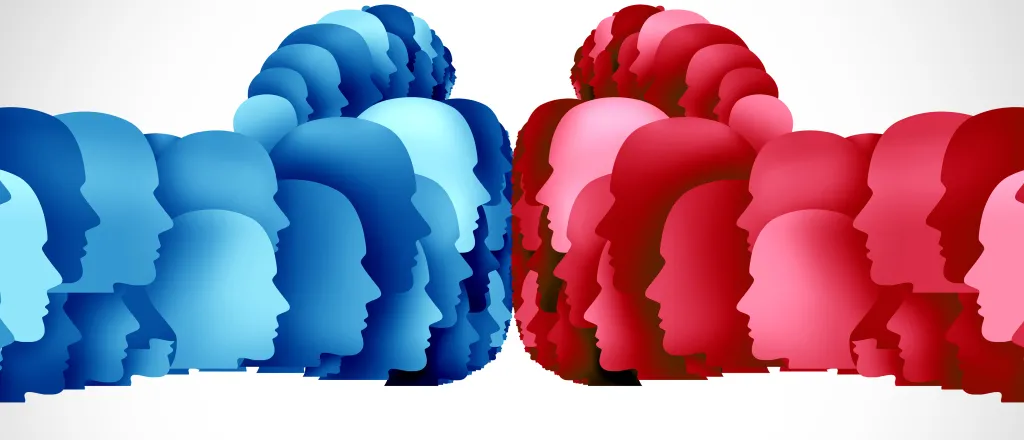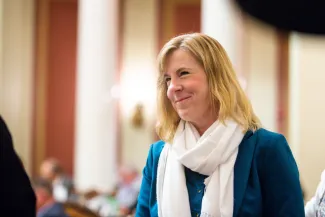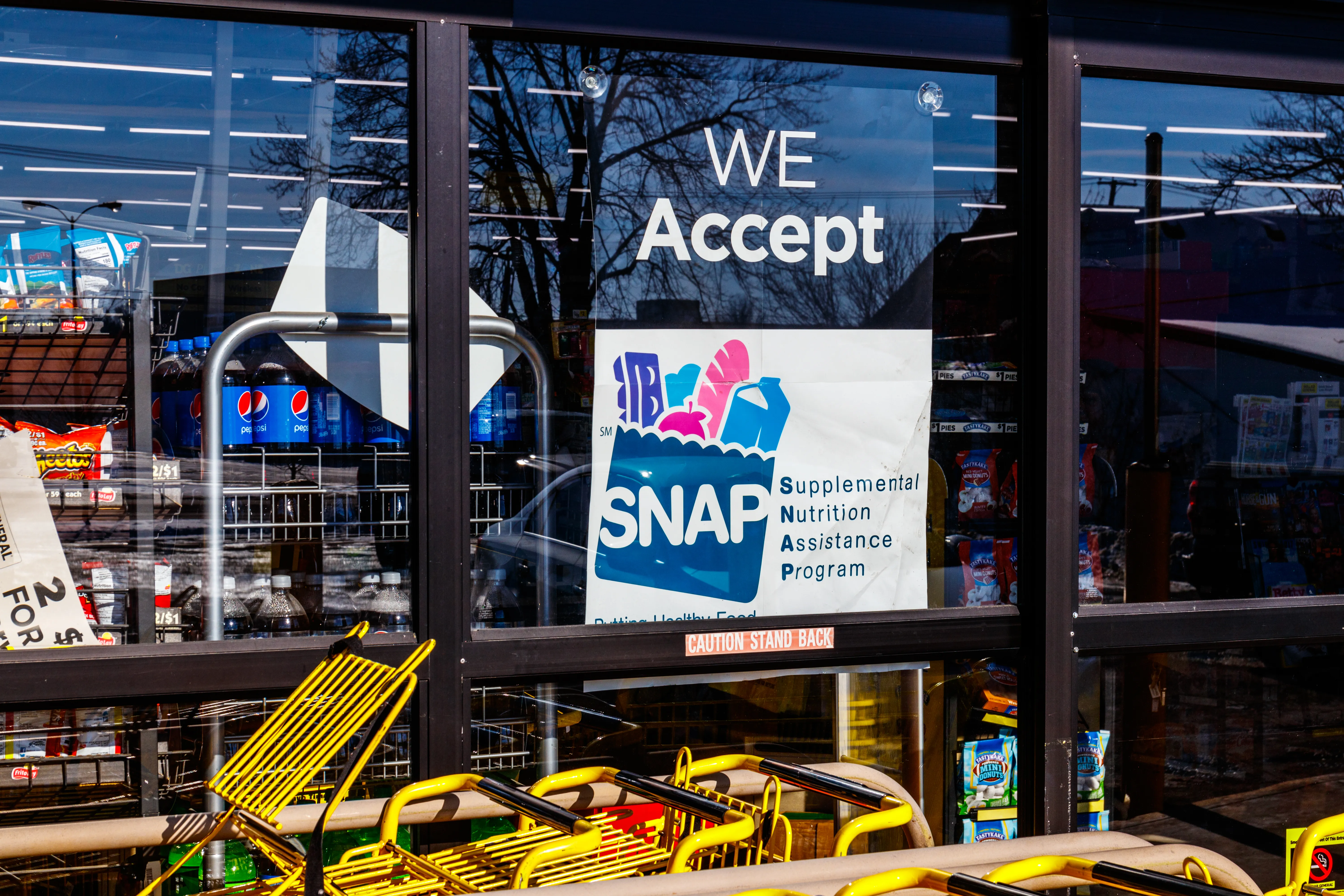
Expert: Assassination of Minnesota lawmaker further normalizes political violence
© wildpixel - iStock-1393613016
Click play to listen to this article.
Minnesota and the nation are feeling the emotional weight of political violence after this weekend's assassination of a top Democratic state lawmaker and the attack of a fellow legislator.
Representative Melissa Hortman, D-Brooklyn Park, who had served as Minnesota House Speaker, was killed inside her home along with her husband. In the nearby suburb of Champlin, Senator John Hoffman, D-Champlin, and his wife were also shot and wounded. Police call the shootings "politically motivated."

Speaker emeritus Rep. Melissa Hortman talks to colleagues during a special legislative session Monday, June 9, 2025, at the Minnesota State Capitol in St. Paul. © Nicole Neri/Minnesota Reformer
The incidents follow a trend of political violence beginning with this spring's arson attack at the Pennsylvania Governor's mansion.
David Schultz, professor of political science at Hamline University, said the current mood somewhat mirrors the violence toward prominent leaders seen in the 1960s.
"Once violence starts to occur, people get used to violence or it becomes part of the game," Schultz explained. "That seems to be where we're degenerating right now."
The events follow last year's assassination attempt on President Donald Trump on the campaign trail, along with increased threats against poll workers. Schultz noted in a healthy democracy, ballots, elections and other engagement tools resolve differences, not violence. He worries the attacks will discourage elected officials from talking with constituents and curtail open meetings.
Schultz pointed out society has grown used to a more isolated way of life, pointing to shopping habits and some people choosing to live in areas cut off from those with different views. Making matters worse, he added, political messages spread through social media fuel misinformation and radicalization.
"Falsity travels more rapidly, more deeply than truth," Schultz observed. "The relative anonymity or distance of the social media also emboldens people to radicalize. Put all that altogether, that gets us part of the recipe of where we are in our society right now."
Schultz added he is not optimistic heightened tensions and political violence will end anytime soon. He said there are some encouraging signs younger voters will not embrace identity politics and demonize their political opponents, but he believes the patterns have shifted, delaying a return to a moderate political tone.

















